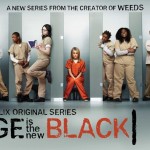There’s a fascinating discussion going on right now about the nature of religious experience, which was kicked off by Ross Douthat and has come to involve such diverse writers as Noah Millman and David Sessions. Douthat’s initial post was about an aspect of Charles Taylor’s A Secular Age. One way to read Taylor is to say that people in a secular age have the same fundamental experiences as people in our religious past and simply interpret them differently. We experience the same reality, but reach different conclusions about that reality. Another way is to say that the very nature of the experience is phenomenologically different. Reality itself, and not just our experience, has changed.
It happened that I watched Pulp Fiction for the first time after this discussion kicked off (as regular readers will know, I’m trying to shed my film illiteracy). The movie contains a running plot in which two hitmen, Jules and Vincent, are sent to kill some people who stole from their boss. In the middle of the job, one of their victims empties an entire clip at them. All the bullets miss their targets. Jules thinks their survival was a miracle, and resolves to change his life. Vincent thinks of it as nothing but a freak occurrence, a little unusual but not unnatural. The video clip above is a crucial scene in which they discuss their different perceptions. Jules bases his case not on some sort of evidentialist argument but on the inner experience of being touched by God while the external events were unfolding.
In my experience, this is fundamentally how religious experience works today. The most crucial religious experience I’ve had was something that even at the time I recognized as fundamentally contestable. I realized outsiders looking at the experience—happening across a Bible passage that profoundly spoke to me a key time in my religious journey—could be puzzled by the weight I placed on it. But I had a conviction that I was experiencing God, born of an inner “touch,” to use the Pulp Fiction word. One way to phrase the question Douthat is looking at is whether people in our religious past would have had the same ability that I had to see the meaning of their experience as in anyway contestable (here Millman raises a good point: one clear way experience was contested in the past was whether it was from God or from the Devil, which suggests people weren’t unfamiliar with the idea of interpretative space between an event and its meaning—one of St. Theresa of Avila’s confessors was convinced her visions were from the Devil and ordered her to make an “obscene gesture” towards her visions of Jesus whenever they came).
But I want to grab onto a slightly different point. In addition to the experience I mentioned above, I’ve also had more minor situations since in which I had a conviction of God’s activity in my life, but suppressed it because it was inconvenient for me. The experience of feeling compelled to go to confession, for example, but not wanting to. Millman talks about this experience of “being under orders” as crucial to religious experience. But it’s extremely easy to rationalize this away by using the same vocabulary skeptics apply to all religious experience. It’s not God ordering you, it’s just guilt or internalized social norms or some other kind of psychological phenomenon. Rationalizing it away robs it of its immediacy or urgency; it can be dealt with later.
And I think here we see a point of contact between our secular age—if it is such—and the religious past—if it was such. St. Augustine famously prayed “Oh God make me chaste but not yet.” The desire to put off conversion until you are older is nothing new, whatever other changes may have marked the switch into a “secular age.” Augustine’s desire to put off chastity may not have caused him to doubt the very existence of God, but it’s easy to see how it could do that. Compare, for example, these two statements by Satan in Paradise Lost. Here’s how he commends the rebellion against God:
Here at least We shall be free;
th’ Almighty hath not built Here for his envy, will not drive us hence:
Here we may reign secure, and in my choyce To reign is worth ambition though in Hell:
Better to reign in Hell, then serve in Heav’n.
Then later when Abdiel questions him (““Shalt thou give law to God, shalt thou dispute / With him the points of liberty, who made / Thee what thou art?”):
That we were form’d . . . say’st thou?
. . . strange point and new!
Doctrine which we would know whence learnt: who saw
When this creation was? remember’st thou
Thy making, while the Maker gave thee being?
We know no time when we were not as now;
Know none before us, self-begot, self-rais’d.
A desire to be free of the kingship of God becomes a skepticism about the very existence of that kingship (this doesn’t mean that the intellect plays no role, as Sessions points out). The biggest trend today isn’t necessarily a decline in the raw number of religious experiences. Rather, the degree to which we are able to suppress these experiences in order to maintain behavioral autonomy. And this has as much to do with community and economics as with phenomenology. In tight communal cultures or in conditions of scarcity, behavioral autonomy—for good or for ill—is already limited, so rationalizing away the experience of God doesn’t get you much.
















